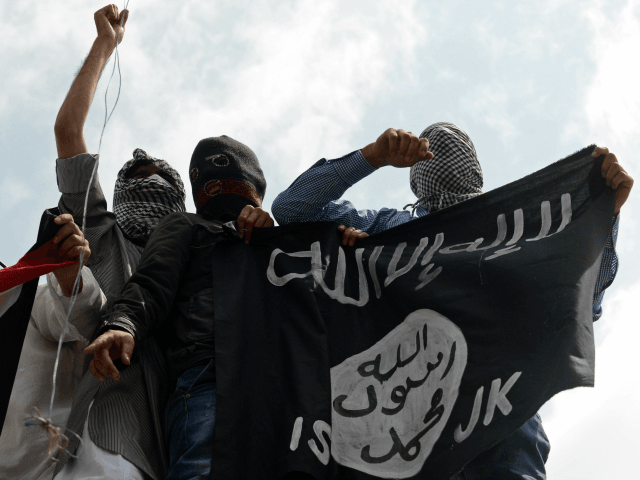KHAZIR (IRAQ) (AFP) – Islamic State group fighters were shaving their beards and changing hideouts in Mosul, residents said, as Iraqi forces moved ever closer to the city Wednesday and civilians fled in growing numbers.
Reached by AFP inside Mosul, several residents said the jihadists seemed to be preparing for an assault after recent advances on the eastern front brought elite Iraqi forces to within five kilometres (three miles) of city limits.
“I saw some Daesh (IS) members and they looked completely different from the last time I saw them,” said a resident of eastern Mosul who gave his name as Abu Saif.
“They had trimmed their beards and changed their clothes,” the former businessman said. “They must be scared… they are also probably preparing to escape the city.”
Residents and military officials said many IS fighters had relocated from eastern Mosul to their traditional bastions on the western bank of the Tigris river, closer to escape routes to Syria.
The sounds of fighting on the northern and eastern fronts of the Mosul offensive could now be heard inside the city, residents said, and US-led coalition aircraft were flying lower over the city than usual.
Tens of thousands of Iraqi fighters have been advancing on Mosul from the south, east and north after an offensive was launched on October 17 to retake the last major Iraqi city under IS control.
The assault is being backed with air and ground support from the US-led coalition which launched its campaign against IS two years ago, shortly after the jihadists seized control of large parts of Iraq and Syria.
– ‘Wave of displaced’ –
Iraqi federal forces, allied with Kurdish peshmerga fighters, have taken a string of towns and villages in a cautious but steady advance over the last week in the face of shelling, sniper fire and suicide car bombings.
Some 3,000 to 5,000 IS fighters are believed to be inside Mosul, Iraq’s second city, alongside more than a million trapped civilians.
Aid workers have warned of a major potential humanitarian crisis once fighting begins inside the city itself.
An Iraqi minister said Wednesday that more than 3,300 civilians fleeing the fighting had sought help from the government the day before, the most for a single day so far.
There was “a big wave of displaced people that is considered the greatest number since the start of the military operation to liberate Nineveh province,” Displacement and Migration Minister Jassem Mohammed al-Jaff said in a statement.
Numbers of displaced residents were growing but stood at a relatively low 8,940 on Wednesday, according to a UN tally, because most of the fighting so far has taken place in sparsely populated areas.
Civilians in villages on the eastern outskirts of Mosul were being bused to a camp near Khazir, an AFP correspondent reported.
“The army made us get out, they told us to leave and said we would see about the details of our settlement” in a camp, said Umm Ali, a 35-year-old woman.
“We used to live in terror night and day, the shelling was coming closer. The Islamic State controlled our lives, so we decided to flee,” said Essam Saadou, a 22-year-old student.
A wave of displaced residents was also expected Wednesday from Al-Shura, an IS stronghold between Mosul and Qayyarah, the main staging base on the southern front, federal police said.
– Sights set on Raqa –
As the noose tightened on Mosul, 13 defence chiefs from the 60-nation coalition meeting in Paris set their sights on Syria’s Raqa, which would be the last major city under IS control if it loses Mosul.
“We have already begun laying the groundwork for our partners to commence the isolation of Raqa,” US Defence Secretary Ashton Carter said after the talks.
The coalition — which also includes Britain and France — has provided support in the form of thousands of air strikes, training for Iraqi forces and advisers on the ground.
France said Wednesday it had extended the mission of its aircraft carrier, the Charles de Gaulle, in the eastern Mediterranean until at least mid-December to help the offensive on Mosul.
President Francois Hollande decided to extend the mission after France’s defence council “reviewed the military, humanitarian, political and security stakes involved in the recapture of Mosul,” a statement issued by his office said.
Leaders in Paris on Tuesday also discussed the post-IS future of Mosul, which is an ethnically and religiously mixed region and where achieving a political compromise might prove even harder than a military victory.

COMMENTS
Please let us know if you're having issues with commenting.